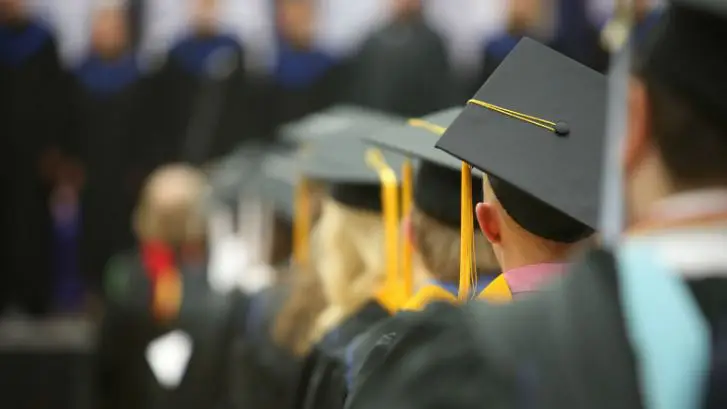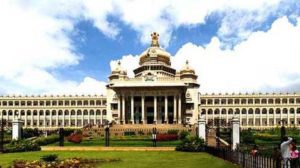Table of Contents
Reservation in India and its constitutional Provisions | UPSC IAS | PCS
Reservation in Indian | Introduction
Reservation in Indian law is a form of affirmative action whereby a percentage of seats are reserved in the public sector units, union and state civil services, union and state government departments and in all public and private educational institutions, except in the religious/ linguistic minority educational institutions, for the socially and educationally backward communities and the Scheduled Castes and Tribes who are inadequately represented in these services and institutions.
- The reservation policy is also extended for the Scheduled Castes and Scheduled Tribes for representation in the Parliament of India.
Reservation in India & its Constitutional Provisions | UPSC IAS | PCS
The exact necessities for the reservation in services in favour of the members of the SC/STs have been made in the Constitution of India. They are as follows:
- Article 15(4) and 16(4) of the Constitution enabled both the state and Central Governments to reserve seats in public services for the members of the SC and ST, thereby, enshrining impartiality of opportunity in matters of civic service.
- Article 16(4 A): it makes provisions for reservation in the matter of promotion to any class or classes of posts in the services under the State in favour of SCs and STs (Constitutional 77th Amendment, – Act, 1995).
- Article 16 (4 B): It enables the state to fill the unfilled vacancies of a year which are reserved for SCs/STs in the succeeding year, thereby nullifying the ceiling of fifty percent reservation on total number of vacancies of that year (Constitutional 81st Amendment, – Act, 2000).
- Article 330 and 332: It provides for specific representation through reservation of seats for the SCs and the STs in the Parliament (Article 330) and in the State Legislative Assemblies (Article 332), as well as, in Government and public sector jobs, in both the federal and state Governments (Articles 16(4), 330(4) and 335).
Rationale Behind giving reservation | UPSC IAS | PCS
- The underlying theory for the provision of reservation by the state is the under-representation of the identifiable groups as a legacy of the Indian caste system. After India gained independence, the Constitution of India listed some erstwhile groups as Scheduled Castes (SC) and Scheduled Tribes (ST).
- The framers of the Constitution believed that, due to the caste system, SCs and the STs were historically
oppressed and denied respect and equal opportunity in Indian society and were thus under-represented in nation-building activities.
Present Status of reservation policy in India and facts about reservation system in india
After introducing the provision for reservation once, it got related to vote bank politics and the following governments and the Indian Parliament routinely extended this period, without any free and fair revisions. Later, reservations were introduced for other sections as well.
- The Supreme Court ruling that reservations cannot exceed 50% (which it judged would violate equal access guaranteed by the Constitution) has put a cap on reservations. The central government of India reserves 27% of higher education for Other Backward Castes, and individual states may legislate further reservations.
- Reservation in most states is at 50%, but certain Indian states like Rajasthan have proposed a 68% reservation that includes a 14% reservation for forward castes in services and education.
- However, there are states laws that exceed this 50% limit and these are under litigation in the Supreme Court.For example, the caste-based reservation fraction stands at 69% and is applicable to about 87% of the population in the state of Tamil Nadu.
Conclusion and Suggestion and A way Forward | UPSC IAS | PCS
- De-reservation Policy: While caste may continue to be the mainstay of reservation policies, the benefits should flow to the vast majority of underprivileged children from deprived castes; not to a few privileged children with a caste tag. Families of public officials of a certain rank certain high income professionals and others above a certain income should be de-reserved. In other words, once they have received a significant advantage of reservations, they should be able to ensure opportunities for their children and vacate the space for the truly disadvantaged children in their own caste groups.
- Affirmative steps: We have to address the anger and aspirations of poor families among unreserved communities. With the Supreme Court ruling of 50 per cent ceiling on reservation quotas, no further reservation is possible. But intelligent, creative, fair and practical ways of giving the poorer children among OBCs a helping hand are possible and necessary. For instance, parental education and the school the child attended, are two sure indicators of poverty and the backwardness of a family. If parents have not had education beyond school, and if the child goes to a government school or a low-end, ramshackle private school, it is a sure sign of a lack of adequate opportunity.
- Make education mandatory and free for all till age of 17
- Instead of introducing reservations for these backward classes what is required is to bring about revolutionary changes in our education system at the grass-root level. When proper education is not provided to children belonging to such categories during the primary stage itself then on what basis are the reservations provided at a subsequent stage.
- Reservations on the basis of caste and not on the basis of other conditions are unacceptable. Fair and just reservations to uplift the people with poor conditions of life, those who don’t have meals to eat, clothes to wear and no home to live in. They shall be made on the basis of factors such as gender as women are more disadvantaged than men since primitive times, domicile, family education, family employment, family property, family income and if any disabilities and traumas. The process of reservation should be such that it filters the truly economically deprived individuals and bring them all to justice




